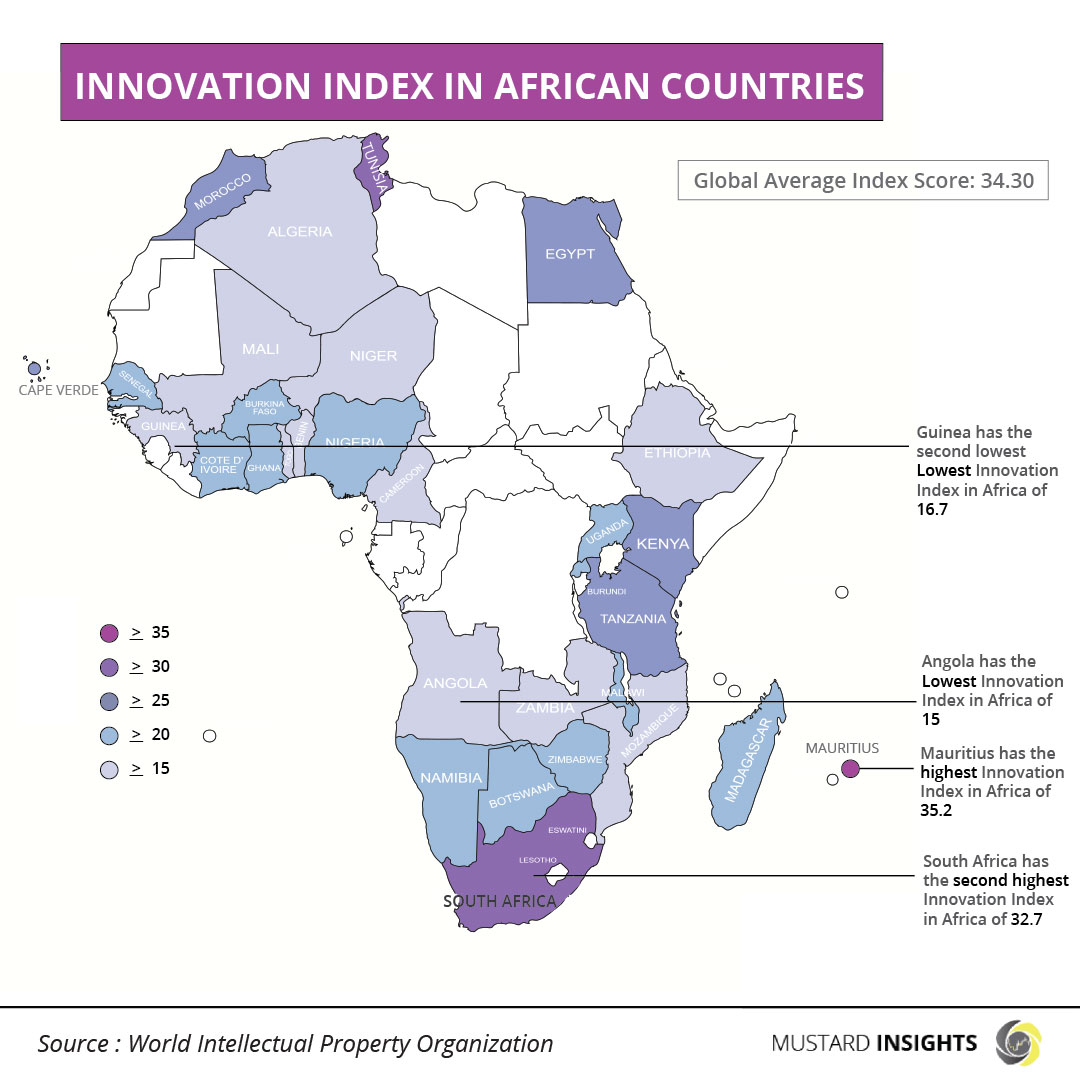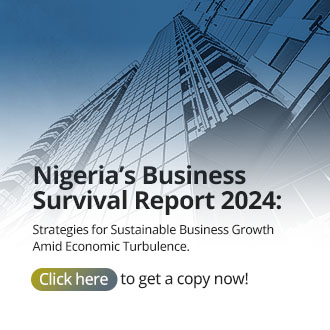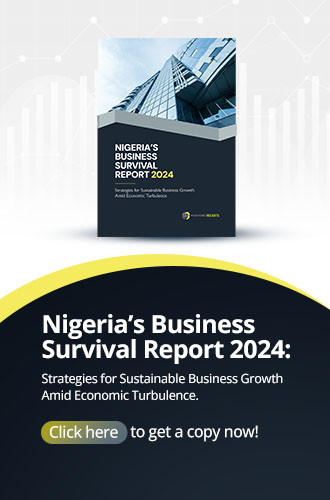Compared to global innovation performance, Africa has been underwhelming. The average index score based on the 132 economies accessed was 34.30. Only Mauritius, had an index score greater than the average in innovation index.

It is safe to say that innovation is necessary for progress to happen, seeing as it creates positive value. The Organisation for Economic Co-operation and Development (OECD) defines it as “...the implementation of a new or significantly changed product or process…”, with a product being a good or a service and a process involving delivery. To put it succinctly, innovation is implementing new ideas, and turning them into reality to create new positive value.
The World Intellectual Property Organisation (WIPO) takes stock of global innovation trends across economies from 132. It takes account of innovation performance with indicators like the publication of scientific articles, patent filings, research and development government expenditure, and access to innovation finance via avenues such as venture capital. It grades the different economies on the following “pillars”:
- Institutions;
- Human capital and research;
- Infrastructure;
- Market sophistication;
- Business sophistication;
- Knowledge and technology outputs, and;
- Creative outputs.
Mauritius, South Africa Lead Performance Index
Compared to global innovation performance, Africa has been underwhelming. The average index score based on the 132 economies accessed in 2021 was 34.30. Only one African country, Mauritius, had an index score greater than the average (35.20); only three others (South Africa, Tunisia, and Morocco) were within five points. The mean score for the 31 African countries was 22.63. The lowest-ranked African country was Angola with a score of 15.00, also being the least score of all countries reviewed.
Some African countries are underperforming both their income group and level of economic development. Angola (132nd), Benin (128th), Côte d’Ivoire (114th), Cameroon (123th), and Nigeria (118th) are all below expectations, with Nigeria being particularly egregious as the worst-performing economy in the lower-middle-income group.
Despite the low scores, there are clear signs of progress. Economic development is intrinsically linked to innovation. More developed economies tend to innovate more and vice versa. Some African countries have managed to buck this trend, producing innovation that outperforms their level of economic development. Countries like Kenya, Mauritius, and South Africa exceed the average in their income group. Kenya shines through, performing above average in Institutions, Market sophistication, Knowledge and technology outputs, and Business sophistication. Mauritius performs credibly in Institutions, Infrastructure, and Creative outputs with South Africa doing well in Market sophistication.
Despite being lowly ranked, some countries are succeeding in translating their innovation inputs into outputs. Lower-middle-income economies like Tanzania (90th), Madagascar (110th), and Malawi (107th) have succeeded in converting low inputs into decent output. Tanzania produces innovation outputs on par with high-income economies like Chile (53rd) and Uruguay (65th).
Improving innovation across the continent
It is best to create an innovation environment that is dynamic, efficient, and balanced. However, it may best serve African economies to focus on government investments. These investments are sorely needed in research and development funding, education, and infrastructure. Unsurprisingly, most African countries perform poorly in the pillars that relate directly to these factors: Institutions, Human capital and research, and Infrastructure. They cannot afford to skip steps in the “innovation journey”; science and innovation investments will lead to technological progress which in turn shows through socio-economic impact.
While there can be private sector investment and financing through venture capital, governments must take the lead in creating an enabling environment that will allow innovation to grow and thrive.
Thoughts?
We won't share your email address. All fields are required.
